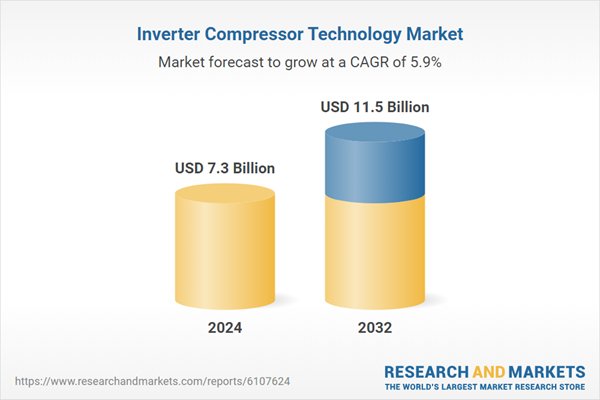Global inverter compressor market to reach USD 11.5 billion by 2032
The global inverter compressor technology market is expected to grow from USD 7.3 billion in 2024 to USD 11.5 billion by 2032, according to a new report by Research and Markets. This represents a compound annual growth rate (CAGR) of 5.89%, driven by demand for energy-efficient appliances and regulatory efforts to reduce power consumption.
Adoption is accelerating in key regions, notably Asia-Pacific, where countries like China, Japan, and India are deploying inverter compressors in residential and commercial appliances. Growth in Europe and North America is supported by green building standards and environmental regulations. Inverter compressors are widely used in air conditioners, refrigerators, heat pumps, and HVAC systems due to their variable-speed operation, enabling energy savings, noise reduction, and temperature stability.
Manufacturers are investing in brushless DC (BLDC) motor technology, smart inverter algorithms, and systems compatible with low-GWP refrigerants. Recent innovations include IoT-based monitoring for predictive maintenance, as well as hybrid and miniaturized compressor designs aimed at boosting energy optimization and equipment durability.
Challenges to market growth include high upfront costs, complex electronic controls, and difficulties integrating the technology into older systems. However, the report notes that regulatory mandates and consumer preference for efficient appliances continue to support long-term adoption.
The report includes global and regional market forecasts through 2034, analysis by product type and application, and company profiles of key players including LG Electronics, Panasonic Corporation, Mitsubishi Electric Corporation, and Daikin Industries Ltd.
